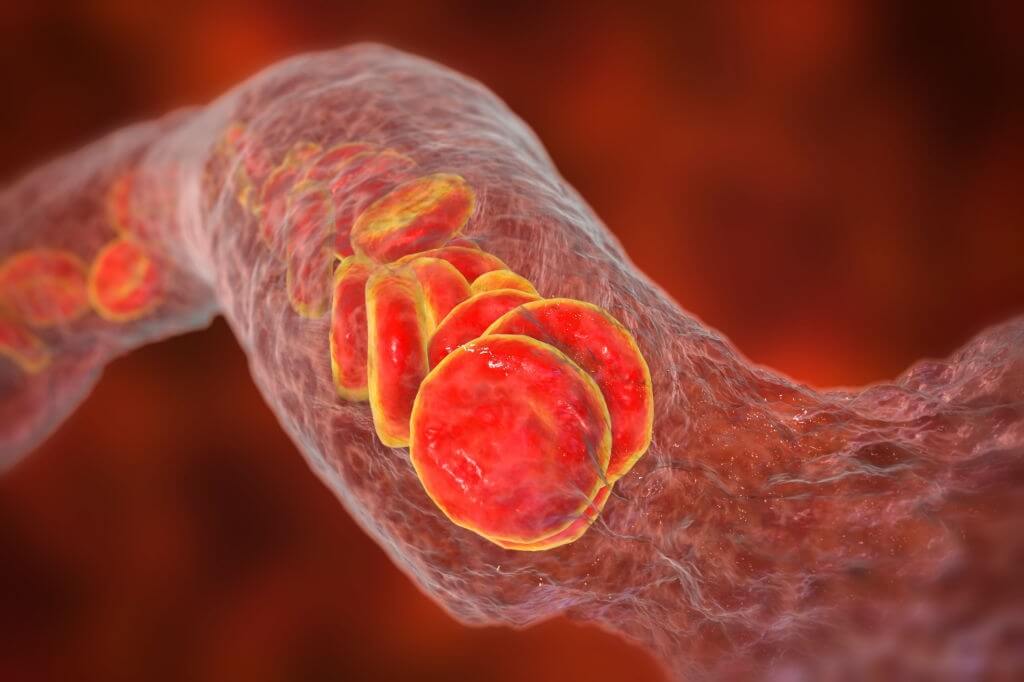Considering the significant danger of blood clots in COVID-19 individuals, scientists discovered that the SARS-CoV-2 virus did not attack blood vessels.
COVID-19-related cardiac problems are generated by inflammatory produced by infected lung cells, according to the study. Drs. Emma Gordon, as well as Larisa Labzin, and Dr. Kirsty Short combined their vascular biology & virology expert knowledge to figure out how the virus damages capillaries.
COVID-19’s Vascular Disease Isn’t Caused By Blood Vessel Infection
The team of experts has conducted various analyses where they have found the effects of coronavirus on blood vessels in the body. It is observed that the virus affects the blood vessels, but the same cannot affect the health of the heart and lead to any type of cardiovascular disease. They have checked many samples before reaching a conclusion.
This study is expected to be helpful to experts in the area of cardiology as there has been no concrete evidence if the virus affects blood vessels in the body and damages the heart as well as creates other cardiovascular issues.

“At least 40 percent of patients that are hospitalized with COVID-19 are at high risk of blood clots, and anticoagulation therapies are now being routinely used,” Dr. Gordon said.
“There have been many studies attempting to prove whether the virus is infecting cells of the inner blood vessel wall or not.
“By conducting our experiments using real, infectious virus rather than fragments of the virus’s spike protein, we can definitively say it is not.”
The scientists utilized UQ’s advanced microscope equipment to follow the virus’s path through the cells and see whether blood vessels react to a living pathogen.
Dr. Labzin, an infectious disease specialist, explained that the body’s inflammation has a huge impact on the heart and lungs. The two systems work closely to battle disease: the blood transports the immune system to the infected area site and forms blood clots when the artery is broken.
“When our immune system works well, it clears the virus from our bodies,” Dr. Labzin said, “But sometimes it goes into overdrive, and we get an overblown inflammatory response causing complications in the case of COVID-19, this is often blood clots when there shouldn’t be any.”
“Knowing that it is inflammation causing these cardiovascular complications arising from COVID-19 rather than the virus itself will help us develop the right treatments and a better understanding of how and why these complications arise.”
Professor Garry Jennings, the acting CEO of the Heart Foundation, said the study clarifies a critical disagreement regarding the virus’s connection with blood vessel linings.
“There is more research to do, but this study is an important step in our understanding of the virus and which cells and mechanisms we should look at next.”
3-hydroxy-3-methyl-glutaryl-coenzyme A synthase inhibitor was another category of extensively utilized cardiac medicines with anti-inflammatory &vasculoprotective properties. Others have hypothesized that statins could be used to cure COVID-19 because of their pleiotropic & anti-inflammatory properties.
To far a probability matching research in patients has shown a decrease across all death in COVID-19. Still, most other prospective trials have found no effect of statins in lowering COVID-19 infections or intensity. Statins haven’t been found to help in abrupt pulmonary crisis disorder in previous research.
The vascular aspect of COVID-19 has come into prominence as fresh information, and medical information regarding the condition has emerged. Knowing the major downregulation cascades produced by COVID-19 inside the circulatory network offers a paradigm for informing therapies on key regulators of the etiopathogenesis, reducing the epidemic disease’s short and long death rates. There has also been a study of images for the idea that vascular plays a key role in pathophysiology and could be a therapeutic focus in COVID-19.